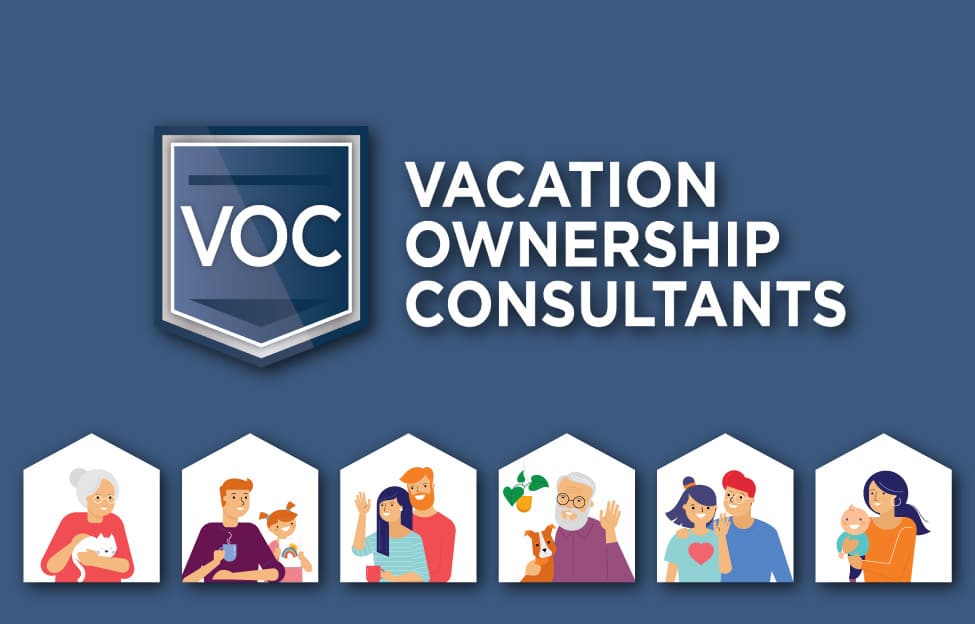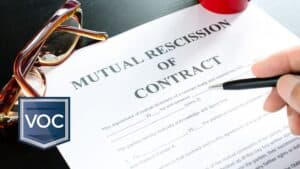If the economy were to reopen soon, tourist destinations will more than likely become flooded with mass amounts of travelers – especially this holiday season. While it may be exciting to get back on the road, the euphoria of a vacation can cause ill-advised spending. Because of this, we thought we’d take some time to talk about the types of consumers timeshares like to target and sell vacations to.
Although we can’t exactly confirm their strategy, helping consumers understand why timeshares focus on certain groups of people may help them avoid misfortune. Over the years, we’ve learned alot about vacation owners and the reasoning behind their appeal of timeshares. A genuine approach has allowed us to see their point of view and develop a passion for educating others on potential pitfalls.
Travelers Aren’t The Only Consumers Timeshares Target.
For the most part, buyers’ appeal is fairly consistent. Almost never is someone actively looking to purchase a timeshare for $22K ($45K+ with interest and fees). Although people visiting paradise may be more susceptible to saying “yes”, nearly every buyer has to be talked into the long term agreement. Since consumers aren’t raving about them, timeshares almost always presents the product as a special offer.
Even if you’re not planning to go on vacation in the near future, you may still be a mark for a timeshare solicitation. COVID-19 really put a dent in timeshare earnings. So it wouldn’t be surprising if unique tactics were used in upcoming months to get consumers to attend sales presentations. If this is this case, it’s best to be prepared for the misleading intrigue.
Do incentives appeal to you? Is it difficult to ignore a deal? Some people believe nothing is free and balk at sales pitches while others struggle to endure aggressive salespeople. No matter what type of consumer you are, knowing the angle of timeshare pitches is invaluable. If you’re not careful, you could end up owning something you don’t want and may not even be able to use. Nonetheless, here are some of the types of consumers timeshares like to target and sell vacations to.
1. Consumers Committed to Obtaining Anything Free.

Nearly every person knows somebody that’s always signing up for giveaway offers or purchasing lottery tickets – awaiting their big payoff. We often poke fun at these types of friends or family members even though we shouldn’t. In reality, they’re often one form submission away from a misleading scam that devastates them. Sometimes, a costly timeshare purchase is what ends up teaching them a lesson.
Over the years, we’ve received a plethora of complaints – many of which include something about the initial incentive. This is because most buyers are offered a gift (usually worth $100-$200) in exchange for 90 minutes of their time. Once the presentation is underway, they often find themselves in an uphill battle to obtain this gift. Some eventually sign the contract just to complete the transaction.
Why Timeshares Like These Types of Consumers.
When analyzing this type of consumer, it’s safe to assume they are living paycheck to paycheck. A few hundred dollars (to go to a show or book an overnight stay) rarely appeals to higher income consumers. Especially if the reasoning is vague. But those that yearn for a handout often bite off more than they can chew.
Rescission periods tend to be less than a week long. Even if they mean to cancel the purchase, they may run out of time. Marketing teams know this and leverage mass amounts of data to target the consumers that timeshares prefer. You could receive a “free offer” in your email, by phone, on social media, even at a home show event or attending a tourist area. If you’re prone to say “yes” and cross your fingers, you might want to think twice.
2. Consumers Who Can’t Afford to Go on Vacation.

For the most part, timeshare companies lick their chops at this type of consumer. They make a living talking people into something they don’t know they want or need. To them, selling somebody something they’re already longing for is a perfect situation. This group of people is often on a tight budget because of a large family, minimal education, disability or limited income.
The simple fact that this is one of the main consumers timeshares target should tell you all you need to know about the industry. Anyone that’s barely making ends meet should never be encouraged to make a large purchase that jeopardizes their quality of life. In fact, they should be receiving advice on how to save money and utilize resources to get ahead.
Instead, They’re Persuaded.
Despite the budget of a financially strapped dreamer, timeshare sales teams know how to “make it work.” We’ve been told they’ve even pitted married couples against each other or convince them they deserve a getaway. Other people are talked into making the purchase with a cosigner or as a group to lower the cost. But no matter how affordable the product is positioned, the result is rarely fruitful as it relates to their finances.
Anybody that attends a timeshare seminar they can’t afford is taking a risk. Even if you’re determined to say “no” and take the free gift, just know your desire and emotion can be used against you. The financed amount may appeal to you if you think you can work longer hours. Thousands of consumers thought this way before COVID-19 took their jobs.
3. Timeshares Like Targeting Middle Class Homes.

Many of the aforementioned characteristics fall under the middle class. While this varies across the country, the demographic usually consists of couples over the age of 30 with a combined household income of $40-$50K. Unlike other types of consumers timeshares like to target and sell vacations to, families or tight knit groups are often persuaded by each other.
When they’re led to believe the purchase can benefit children, social circles, elderly parents or a spouse, the appeal tends to increase. This is especially true when the income level of the household has been progressive. Middle class families that have worked hard to reach a certain level of prosperity often look to reward themselves. This provides prominent resorts with a unique opportunity to position the timeshare product.
A home consisting of a young family that’s excelling financially or empty nesters that just paid off their kid’s college tuition are extremely ideal for a timeshare pitch. Although their budget may be small, they are able to make payments towards a household tradition at a location they can look forward to every year.
4. Careless and Carefree Tourists in Spending Mode.

Since we’ve talked about this a lot in other blog posts, we’ll keep this short and sweet. Timeshare companies love targeting happy spending vacationers. If you’ve ever been to a tourist-heavy destination, you’ve more than likely come across a timeshare booth on the strip, boardwalk or hotel lobby. Bass Pro Shops even lures unsuspecting buyers in store! The point is, indulgence is contagious.
Timeshares know that carefree tourists tend to think they’re invincible because they’re on vacation. Just know if you’re out drinking, playing games, stopping to try every delicacy and/or spoiling your kids; then you’ll probably catch the eye of a timeshare salesman or two. Oftentimes, these types of consumers can be found in matching t-shirts and visors that announce to the world they’re careless and “on vacation.”
5. Timeshares Like to Sell to the Elderly and Disabled.
Like we mentioned in this past week’s news article, the elderly community is frequently victimized by a number of scams. Whether it be online or in person, their lowered cognitive abilities make it difficult for them to smell deceit. Deteriorating health and technological misunderstandings make the costly lure of a timeshare purchase potentially devastating for seniors.
Those with disabilities and limitations normally struggle to properly research or even comprehend the purchase. They rely on sales teams to be honest and educate them on the entirety of the agreement. Unfortunately, like many other sales organizations, these details are left out and the sale is expedited to close the deal.

Why Aging Consumers Are Extremely Vulnerable.
It’s not that elderly consumers are gullible, they’re just from a different time. Back in the day, specialists existed. Today, good salesmen have replaced them. Like anyone else with some form of handicap, they simply long to be able to trust those that claim to provide value.
The problem is, once seniors are under contract, the aggression usually increases. Upgrades are often pushed to make the purchase “more convenient” for aging buyers. The bombardment can easily catch them off guard, leading to further ill-advised spending – all of which bodes well for the timeshare.
Will Timeshares Target Consumers With Added Appeal This Fall?
As the dust begins to settle from a global pandemic, the yearning for travel is beginning to rise. But not only by consumers. Timeshare companies have got to be extremely eager to relaunch the sale of their product. They’ve been adamant about their losses since March. If you feel as though you’re one of the consumers timeshares like to target and sell vacations to, then be prepared for a sales pitch.
Confidence is key. Take the time to understand the industry and what your options are. Don’t let salespeople tell you what’s best for you and always think for yourself. When you feel as though something might be too good to be true – then it probably is.
If you’ve fallen for any of these tactics and you want to get out of your timeshare, then we’re always here to help. You can schedule a free consultation or pre qualify for our service below.






